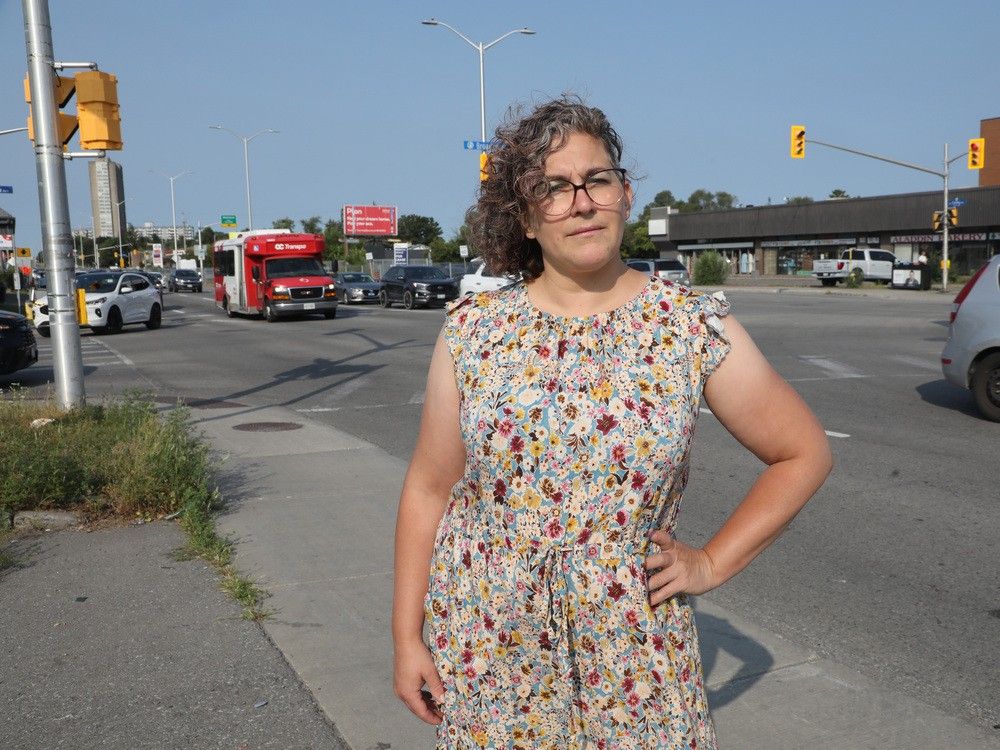The Impact of Fare Changes on Youth and Families in Ottawa
As a parent of two children, Katy de Sousa is deeply concerned about how her family will manage the challenges of raising independent young people in Ottawa. Her youngest child, who is 11 years old, is at an age where he would typically begin exploring the city by taking transit trips on his own. However, recent changes to OC Transpo’s policies have made this transition more complicated.
Starting from September 1, the youth fare pass, which provided discounted monthly transit passes for those aged 11 to 19, will no longer be available. From that point on, these individuals will be charged the same price as adults for a monthly pass. This change comes after a five-per-cent fare increase in January 2025, driven by a $120-million shortfall in the transit system.
De Sousa’s family relies heavily on public transportation. They only have one car, which her husband uses for daily commuting. She notes that their entire lifestyle is structured around this single vehicle, with herself often biking or using transit for other parts of the city. However, she believes that public transit has become less convenient due to longer routes and increased costs.
The elimination of the youth fare pass adds another layer of financial strain on her family. De Sousa explains that this change will impact them significantly, not just financially but also in terms of time and independence. “If they don’t have access to transit to get places, it’s going to eat into my time to take them places,” she said. “It also doesn’t foster their own independence in being able to move around their city.”
Her oldest child, who is 19, has already had to turn down job opportunities because of the fare changes. Previously, they used public transit twice a day to travel to and from school. Now, with fewer options and higher costs, it’s becoming increasingly difficult for young people to access employment and essential services.
Alternative Solutions and Community Reactions
Katrina Camposarcone-Stubbs, a public information officer with the City of Ottawa, noted that some youths may still benefit from a Student Transit Pass through their school boards. During the winter 2024 semester, over 85 per cent of Youth Passes were sold to school boards rather than individual customers. In early 2025, fewer than 100 individual customers purchased the Youth Pass each month.
However, this solution does not fully address the concerns raised by parents like De Sousa. Coun. Sean Devine, representing Knoxdale-Merivale ward, expressed strong opposition to the decision to eliminate the youth fare. He pointed out that Ottawa now charges 11-year-olds $4 per transit ride, while 11- and 12-year-olds in Ontario can access a discounted “pre-teen” fare of $2 per ride if they purchase a Presto Card.
Devine highlighted that other Canadian cities, such as Toronto, Vancouver, and Victoria, offer free transit for 11-year-olds, while Calgary and Winnipeg charge lower fares. He argued that Ottawa’s approach is counterproductive and could lead to long-term negative consequences for the city’s transit system.
Long-Term Implications and Public Concerns
Tom Ledgley, a coordinator with the grassroots organization Horizon Ottawa, echoed similar concerns. He described the decision as another example of short-sighted policy-making that fails to consider the long-term benefits of investing in youth transit. Ledgley pointed to past controversies, such as OC Transpo’s attempt to increase senior passes by 120 per cent, as evidence of a pattern of problematic decisions.
He warned that if the trend continues, more residents may opt to buy vehicles instead of using public transportation, leading to increased traffic congestion and more vehicle-related accidents. Those who cannot afford alternative transportation will bear the brunt of the costs, exacerbating the overall cost of living crisis.
Ledgley emphasized that public transportation is not just a convenience but a vital service that supports environmental sustainability and social cohesion. Limiting access for young people sends a message that transit is not a reliable option, which could discourage future ridership.
Calls for Change and Future Outlook
Devine believes that the city council will revisit the issue during the 2026 budget discussions. He hopes that better solutions will emerge to address the challenges facing OC Transpo and to rebuild ridership. “If they haven’t, then it’ll come to council, myself included and hopefully others (will) try to, once again, stop the city from shooting itself in the foot when it comes to transit and building a ridership.”
For families like De Sousa’s, the changes are not just about money—they’re about the ability of young people to grow, explore, and become self-reliant. As the debate over transit policy continues, the voices of those affected remain crucial in shaping the future of public transportation in Ottawa.

